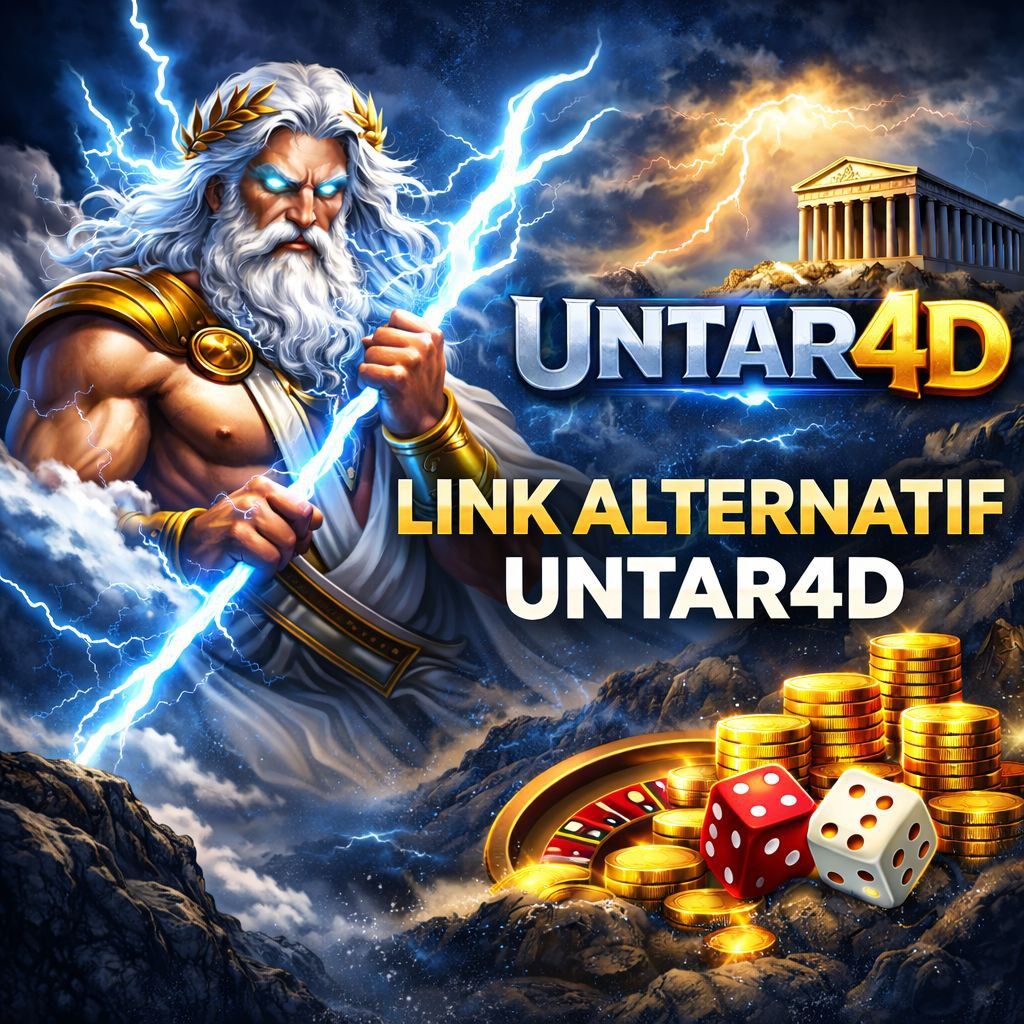Rating Puas ! 13.777.888
Price:Rp 10,000
UNTAR4D: Login Link Alternatif Resmi Situs Slot Gacor Pagi Ini
Kebutuhan akan akses yang cepat dan lancar menjadi faktor utama dalam memilih platform digital, dan UNTAR4D menjawab kebutuhan tersebut melalui sistem login yang efisien dan selalu diperbarui. UNTAR4D Login dirancang agar pengguna dapat masuk ke platform dengan mudah tanpa hambatan teknis, kapan pun dibutuhkan. Dengan struktur akses yang fleksibel, pengguna tidak perlu khawatir mengenai kendala yang sering terjadi pada platform digital lainnya.
Salah satu keunggulan UNTAR4D terletak pada penyediaan link akses terbaru yang selalu diupdate. Hal ini bertujuan untuk memastikan bahwa pengguna tetap dapat terhubung dengan platform meskipun terjadi perubahan teknis atau penyesuaian sistem. Update akses dilakukan secara rutin sehingga pengguna tidak perlu mencari alternatif lain yang berisiko atau tidak resmi. Semua akses diarahkan melalui sistem yang telah diverifikasi agar tetap aman dan stabil.
Proses login UNTAR4D juga dibuat sederhana namun tetap memperhatikan aspek keamanan. Pengguna dapat mengakses akun mereka dengan cepat tanpa langkah yang berbelit, namun tetap dilindungi oleh sistem verifikasi yang memadai. Kombinasi antara kemudahan dan keamanan ini menjadikan UNTAR4D unggul dalam hal kenyamanan akses, terutama bagi pengguna aktif yang membutuhkan kecepatan.
Stabilitas akses menjadi perhatian utama dalam pengembangan UNTAR4D Login. Sistem backend dioptimalkan agar mampu menangani banyak permintaan login secara bersamaan tanpa menurunkan performa. Hal ini penting untuk memastikan bahwa setiap pengguna mendapatkan pengalaman yang sama baiknya, tanpa harus menunggu lama atau mengalami kegagalan masuk akibat overload sistem.
Selain itu, UNTAR4D memastikan bahwa setiap pembaruan link akses tetap terintegrasi dengan sistem utama. Pengguna tidak diarahkan ke halaman yang tidak relevan atau berisiko, melainkan langsung ke lingkungan resmi yang telah disiapkan. Dengan pendekatan ini, UNTAR4D menjaga kepercayaan pengguna sekaligus meminimalkan potensi gangguan akses.
Pengalaman login yang konsisten membuat UNTAR4D semakin dikenal sebagai platform yang mengutamakan kenyamanan pengguna. Tidak hanya sekali pakai, tetapi dirancang untuk penggunaan jangka panjang tanpa masalah teknis berulang. Inilah yang membedakan UNTAR4D dari platform lain yang sering mengalami kendala akses.
Dengan sistem login yang selalu diperbarui, link akses terbaru yang stabil, serta fokus pada keamanan, UNTAR4D Login menjadi solusi ideal bagi pengguna yang menginginkan akses cepat dan tanpa hambatan. Platform ini terus beradaptasi dengan kebutuhan teknis agar setiap proses masuk berjalan lancar setiap hari.
Star Seller
Star Sellers have an outstanding track record for providing a great customer experience – they consistently earned 5-star reviews, dispatched orders on time, and replied quickly to any messages they received.
Star Seller. This seller consistently earned 5-star reviews, dispatched on time, and replied quickly to any messages they received.


